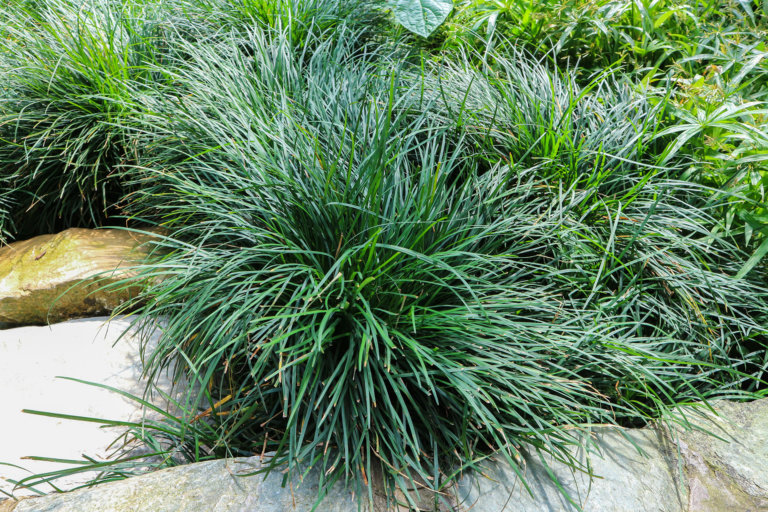Weeds can ruin the look of the stunning backyard you worked tirelessly to achieve. They not only spoil the overall look, but also steal the nutrients, sun, and water from your plants. However, the strong chemicals in the majority of weed killers can be toxic and can harm your lawn.
The solution? Use natural weed killers instead of glyphosate and other damaging chemicals. Here are our top 10 natural homemade weed killers:
Method 1: Vinegar
Vinegar is not what people would generally think of when they want to remove the weeds safely. However, it’s one of the most effective natural weed killers. Vinegar has been found to be a good alternative for glyphosate.
Keep in mind that vinegar doesn’t work on weeds that are deeply rooted, as it merely burns the weeds that are visible on the surface. It is still highly effective in removing the small weeds that are poking out.
All you have to do is:
- Add vinegar to a spray bottle
- Shake it a bit
- Spray it on the stems and leaves of the weeds
- Leave it for a while, and then pull the weeds out
Vinegar is best to use on gravel and paving as it alters the soil and prevents weeds from growing in the future.
Method 2: Salt
Salt has been used as a pesticide and herbicide for decades and is useful in killing and removing weeds. Here’s how you can use salt as a weed killer:
- Take three parts salt and add it to one-part water
- Mix well so that the salt gets dissolved
- Leave the mixture for ten minutes
- Pour the mixture in a spray bottle
- Spray it on the weeds
This is a cost-effective and easy way of removing and preventing weeds. Remember, this solution shouldn’t be used on flowers or lawns as it might deter future growth.
Method 3: Boiling Water
Boiling water is another natural and easy way to remove weeds. The best thing about this weed killer is that there is no need to mix it with anything. All you have to do is boil the water and use it on the weeds, and it can be used anytime.
Here’s what you need to do:
- Firstly, boil four to five cups of water or as required
- Once it is boiled, pour it on the leaves of the weeds
- Be sure to pour enough water that it goes into the roots
Tip: Be sure to pour the boiling water in controlled and small amounts to avoid the water reaching the nearby plants or flowers, as it could cause harm.
Method 4: Baking Soda
Baking soda is another effective and natural weed killer. It is ideal for removing weeds from concrete cracks. Here are two methods you can use:
For Weeds Growing Near Plants and Grass:
- Use a mist to moisten up all the weeds
- Take one teaspoon baking soda and evenly cover the weed. Make sure to cover the entire foliage of the weed.
- Repeat this on all of the weeds
For Weeds Growing Away from Plants and Grass:
- Dump a handful of baking soda on top of the weeds that are growing in sidewalks and driveways
- If there is any spilled baking soda on the sidewalk or driveway, sweep it into the cracks
Not only will the weeds, but the baking soda will also prevent them from growing back.
In both methods, you can repeat the steps in four to six weeks in case the weeds haven’t been completely removed.
Method 5: Mulch
Mulching is also a natural weed killer and is simple to use.
All you need is cardboard or newspapers. Create a layer of these on top of the weeds, so they block out the sunlight. This will eventually kill the weeds and prevent them from growing again.
Method 6: Cornmeal
Research has shown that cornmeal gluten works the same way as an herbicide without damaging chemicals. All you need to do is sprinkle it in your garden to prevent the weed from growing.
However, be careful where you sprinkle it as it would prevent other seeds from sprouting too. Therefore, avoid using cornmeal on your vegetable garden until the plants are established.
Method 7: Rubbing alcohol
Rubbing alcohol is another excellent natural remedy for weeds. Here is how:
- Add two tablespoons of alcohol to one liter of water
- Mix well
- Pour this mixture in a spray bottle
- Spray directly on the weeds
This mixture eliminates the weeds by removing all the moisture from the foliage of the weeds. When they are deprived of what they need to survive, they will die.
Method 8: Borax
Borax can also be used to remove weeds. However, make sure you don’t overuse it, or it may damage the surrounding plants. To use it:
- Take one cup of borax powder and dissolve it in half a cup of warm water
- Once it has completely dissolved, combine with 2 gallons of water and mix thoroughly
- Pour it into a spray bottle and evenly apply it to the unwanted plants
Apply this mixture once a year during the spring. It’s best to avoid applying it two years in a row.
Method 9: Salt and Boiling Water
Boiling water and salt are effective weed killers individually, but combining them makes them even more powerful. Make sure to follow the same precautions as salt and boiling water can damage your flowers and plants.
Follow these steps:
- Boil two quarts of water
- Add in a tablespoon of salt if you are only using it for weeds near the plants and flowers
- Mix well and pour it in a spray bottle
- Spray it on the weeds
If you are using it for weeds growing in your sidewalks and driveway, then simply pour the mixture on top of the weeds.
Method 10: Vinegar, Salt, and Soap
We already know vinegar and salt are great weed killers. You can use them together and with soap too to make a more potent mixture. Keep in mind that adding salt to the mix makes it too strong for anything to grow where applied.
- Add in one tablespoon of liquid soap in one gallon of vinegar
- Mix well
- Add one cup of salt if you’re using it in places like concrete pathways, driveways, and sidewalks. Skip this step if you are using this mixture on weeds growing in your garden near your plants and flowers.
- Thoroughly mix the solution
- Spray the mixture on the weeds on a sunny day







